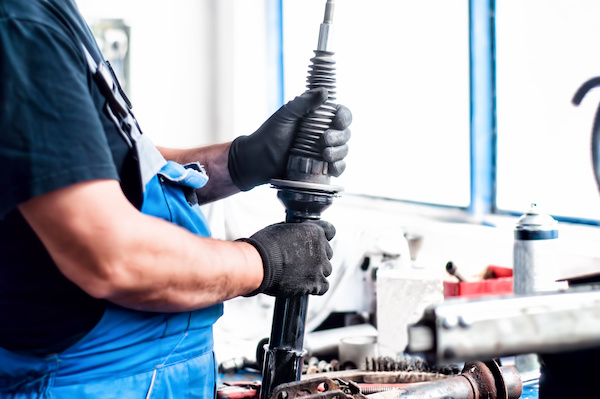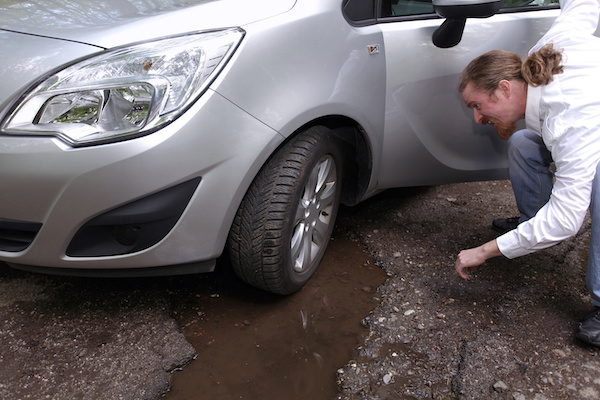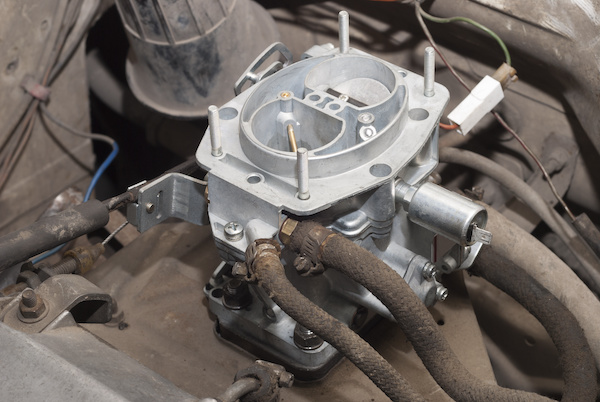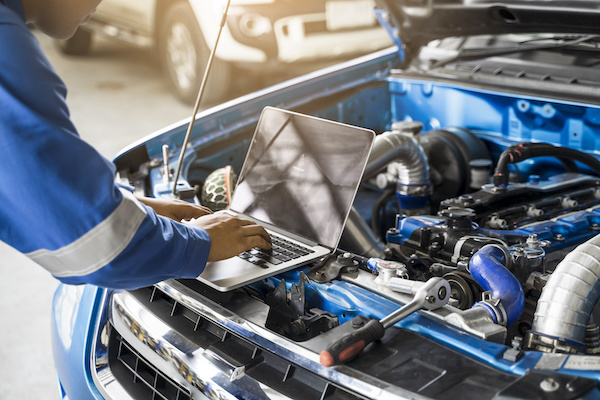Posted on 3/30/2023

The suspension system in your vehicle is accountable for maintaining a smooth ride and holding your tires in proper contact with the road. However, over time, the suspension components can wear down, resulting in a bumpy ride, poor handling, and even safety hazards. 5 Signs That Indicate You Need Suspension Repairs Bumpy ride: If you feel every bump in the road and your car bounces excessively, it could be a sign of worn-out shocks or struts. You may also notice a clunking noise when driving over bumpy surfaces. Uneven tire wear: Have you noticed that your tires have been wearing unevenly recently? If so, it could be an indication that your suspension is out of alignment or that there is damage to the suspension system. Steering problems: If you encounter hardship steering or notice excessive movements in the steering wheel, it could be a sign of worn-out suspension. Noises: If you hear clunking, knocking, or other unusual noises coming from your suspension while driving, i ... read more
Posted on 2/28/2023

If you own a car with a lot of miles on it, also known as high mileage, it's important to take proper care of it to ensure it continues to run well for years to come. While high mileage can mean wear and tear on your vehicle, you can do several things to keep it in good condition. Here are some key tips for high-mileage vehicle owners to follow: Follow the manufacturer's recommended maintenance schedule: Your vehicle's manufacturer has created a maintenance schedule that outlines when to have certain services done, such as oil changes, filter changes, and fluid flushes. Following this schedule can help prevent problems down the road. Pay attention to warning signs: As your vehicle ages, it may start to make new noises or have other warning signs that something is wrong. Be sure to take note of any changes and get them looked at as soon as possible to prevent more expensive problems from arising. Keep an eye on fluid levels: Check your vehicle's fluids regularly, incl ... read more
Posted on 1/30/2023

A carburetor is a mechanical device that mixes fuel and air in the right proportion before it is introduced into the engine's combustion chamber. It was widely used in vehicles prior to the widespread adoption of electronic fuel injection systems. Although less common today, there are still many older vehicles that use carburetors. In this blog, we will explore the basics of carburetors, the problems that can occur with them, and the repairs that can be done to keep them running smoothly. First, let's take a look at the basic components of a carburetor. A carburetor consists of a float bowl, a venturi, a throttle valve, and a mixture screw. The float bowl holds fuel, which is drawn into the venturi by the vacuum created by the airflow through the carburetor. The throttle valve controls the airflow into the engine, and the mixture screw sets the air-fuel ratio. There are several issues that can occur with carburetors, including clogged jets, dirty air filters, and worn or bro ... read more
Posted on 12/23/2022

It's important to make sure all of your vehicle's lights are functioning correctly for safety and legal reasons. So, if you've noticed that your tail light is out, it might be time to take a look at why it's not working and how to fix the issue. In this blog post, we'll discuss some of the common causes of a non-functioning tail light and the best ways to diagnose and repair the issue. Common Causes of a Non-Functioning Tail Light There are several potential causes for why your tail light may not be working. The most likely causes include a burned-out bulb, broken or corroded wiring, a faulty fuse, or a bad switch. Burned-out bulb is as simple as it sounds: the light bulb itself has expired and needs to be replaced. A broken, corroded, or loose wiring connection means that the power from your vehicle's battery is not reaching the tail light assembly. This can be caused by a variety of factors such as worn insulation on the wires, water damage, or physical dam ... read more
Posted on 11/29/2022

Whether you are buying a car, know that it is a significant investment. In fact, some people can argue that searching to buy a pre-owned car is an even harder task than one that is brand new. When looking at pre-used vehicles, you have to make sure the condition that the seller claims it is in is tried and true. While a car might catch your eye and look as it is stated on the outside, it can be hard to determine whether the internal workings of the vehicle match the seller’s claims. That is where the beauty of a pre-purchase inspection comes in! A pre-purchase inspection, or PPI, is a procedure performed at Snider Auto Care to ensure your confidence in buying a pre-owned car, SUV, or truck. Our technicians will perform a thorough bumper-to-bumper inspection to let you know the vehicle’s true condition. We can report any underlying issues or concerns with the car. Overall, it will help you gain confidence in th ... read more